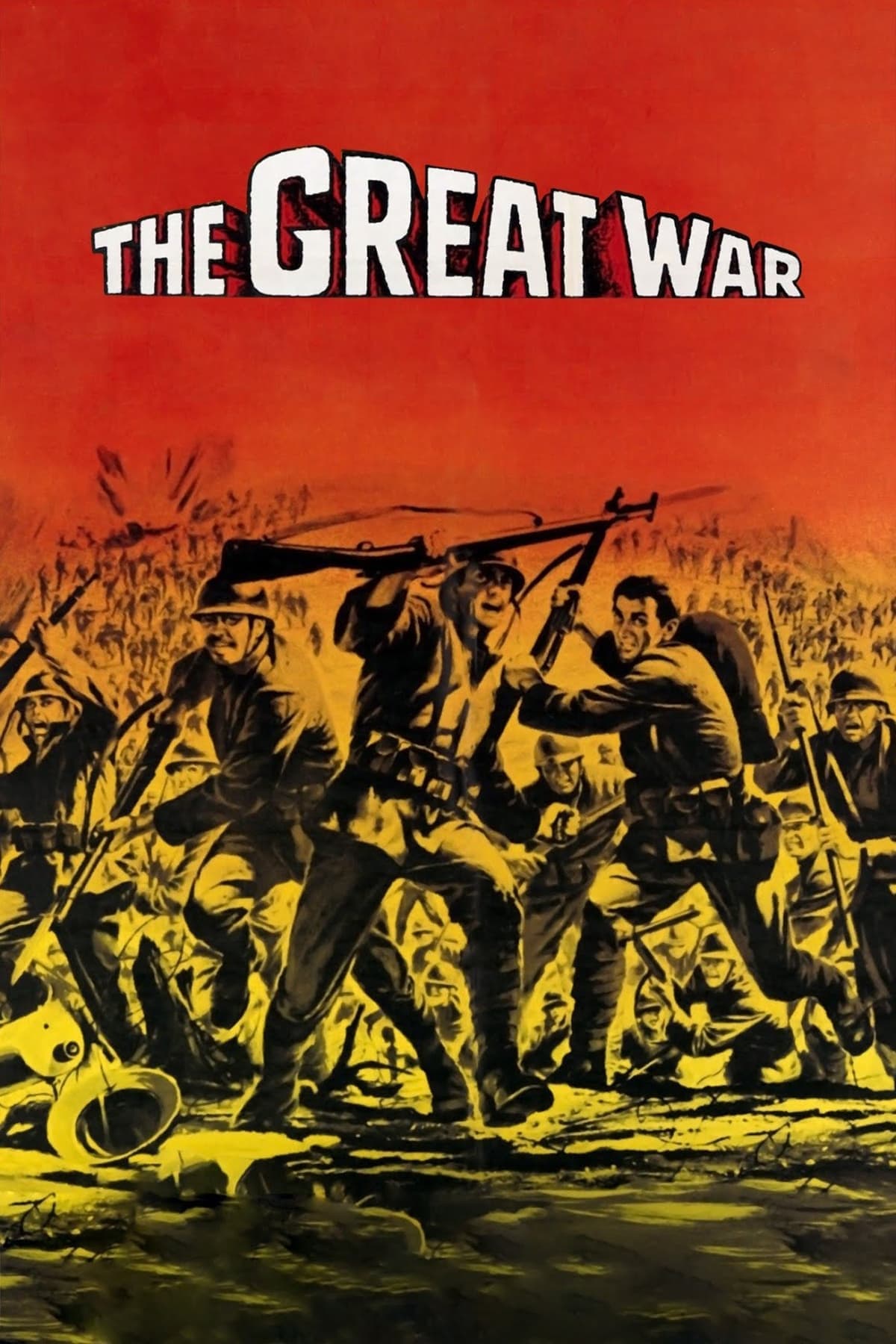
The Great War
1959
Rate this movie
Average: 0.00 / 5
(0 votes)
Director
A fierce and disillusioned critique of every form of war through Monicelli's polished eye and the masterful performances of Sordi and Gassman. Monicelli, whose genius lies in his ability to distill the bitter essence of the human condition through the distorting, yet so truthful, lens of comedy, reaches unexplored heights here. His gaze, never indulgent, manages to capture the pettiness and grandeur, the fear and unexpected courage that coexist in the soul of the common man, transforming tragedy into a grotesque farce and, precisely for this reason, more heartbreaking. And giving shape to this two-sided vision are two giants of Italian cinema: Alberto Sordi and Vittorio Gassman, whose on-set chemistry transcends mere acting, rising to symbolize an Italy divided between cunning and bravado, but united in destiny.
The story recounts the exploits of two friends who try in every way to avoid the 1916 conscription for the Great War. Oreste Jacovacci, Alberto Sordi perpetually intent on juggling poverty and petty cunning, a Roman with a drawling accent and elastic morals, and Giovanni Busacca, Vittorio Gassman's arrogant and vain Milanese, who tries to impose himself with an artificial elegance and bourgeois haughtiness. Their initial reluctance, their astute and desperate search for stratagems to escape the front, is not the cowardice of the negative hero, but the primordial instinct for survival of two "ordinary men" overwhelmed by a death machine they neither understand nor desire. It is the archetype of the anti-hero of commedia all'italiana that manifests itself in all its power.
Needless to say, the two will find themselves fighting on the front and will solidify an unexpected friendship. A friendship born not from elective affinities, but from necessity, from sharing the same harrowing trench of mud and terror. The narrative follows them through the absurdities of military life, the subterfuges to obtain extra rations, the brief leaves that taste of ephemeral freedom. It is in this context that the initial distrust transforms, slowly but inexorably, into a rough, almost unconscious solidarity, a bond forged in the crucible of shared fear and humiliation. An evolution that recalls the strength of human relationships forged in adversity, as happens in many tales of war and survival, but here filtered through the disillusioned lens of comedy.
They will find time and a way to spend a relative period of peace in the village of Tigliano, where one of them will even manage to fall in love with a local prostitute. This interlude, a sort of oasis of normalcy in a desert of madness, is emblematic. Tigliano becomes a microcosm of desire and illusion, a fleeting refuge where humanity can still breathe, love, hope. The relationship that blossoms, however transient and conditioned by the context, is a glimmer of authentic life, a call to tenderness that war would seek to eradicate. It is the characters' extreme attempt to cling to fragments of pre-war existences, to delude themselves that violence is not all-encompassing.
Until a vital mission tears them away from that ephemeral quiet, catapulting them back into the harsh fury of battle. The return to the trenches, to brutality, is all the more impactful as it contrasts with the brief interlude of peace. The final mission, their last desperate ordeal, is dictated not by heroism nor ideals, but by a cynical and mocking fate that sucks them into a vortex of inescapable violence. The film shows us a war without rhetoric, where acts of "coraggio" are often the result of chance, desperation, or a sense of duty so alien as to appear almost surreal. The final scene, in particular, remains etched in collective memory for its dramatic power, a gut punch that elevates the film far beyond mere war satire.
A wonderful balance between comedy and drama, an admirable convergence of irony and anti-war message. This is the beating heart of La Grande Guerra. Monicelli, master of commedia all'italiana, demonstrates here how bitter laughter, biting satire, can be more effective tools than direct denunciation for dismantling heroic and rhetorical narratives. The film is not only an indictment of war, but a merciless fresco of the absurdity of conflict, of its capacity to annihilate the individual and reveal their fragility. Humor does not temper the drama, but sharpens it, makes it more palpable, almost a defense mechanism against unsustainable horror. It is an approach that sharply distinguishes itself from American war epics or heroic celebrations of other contemporary cinematographies; here war is dirty, random, deadly, and profoundly, tragically useless.
Those men suffering in the trenches are us; Monicelli leads us by the hand into a war to denounce its horrors with a smile, a narrative operation that only he could have pulled off, especially in the immediate Italian post-war period, when the wounds had not yet fully healed. Released in 1959, during the economic boom, La Grande Guerra fit into a context where Italy, although projected towards the future, still bore the scars not only of the Second World War but also of the critical re-evaluation of the First, the so-called "useless slaughter." The film had the courage to demythologize the Risorgimento and nationalist epic linked to the conflict, showing soldiers not as intrepid heroes but as common men, frightened, selfish, yet capable, at times, of flashes of unexpected dignity. This disillusioned and unromanticized approach was revolutionary, anticipating themes that would only find space in later years in works from other cinematographies. The denunciation of the horrors of war, therefore, does not come through explicit scenes of violence, but through daily humiliation, the loss of all individuality, the total indifference of the military machine.
A film that manages to fuse neorealism and commedia all'italiana. The neorealist lesson, with its attention to the lived experience of ordinary people, to daily life marked by hardship and small joys, and to the representation of a rural and authentic Italy, is perfectly grafted here onto the structure of comedy, understood as a distorting mirror of society. The mud of the trenches, the tired faces of the soldiers, the mixed dialects, the palpable disillusionment are all elements that recall the documentary rigor of neorealism. But this raw reality is then filtered and re-elaborated through sarcasm, the caricatural characterization of the protagonists (though capable of surprising evolutions), and the lively rhythm of comedy. The result is a timeless masterpiece, a profound reflection on human nature and the madness of war, which continues to resonate with a rare power, demonstrating that, sometimes, the bitterest laughter is that which reveals the most unsettling truth.
Gallery

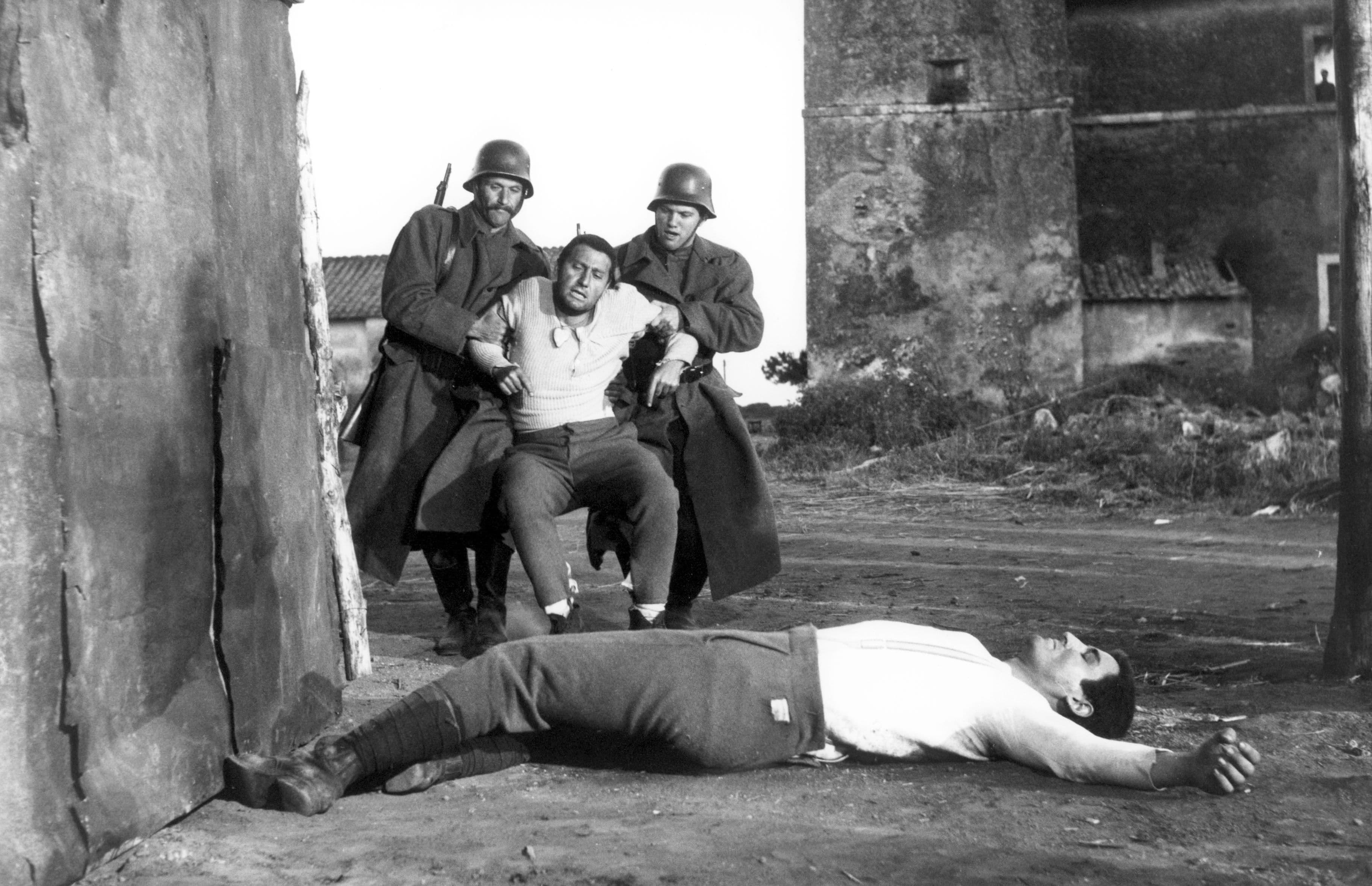
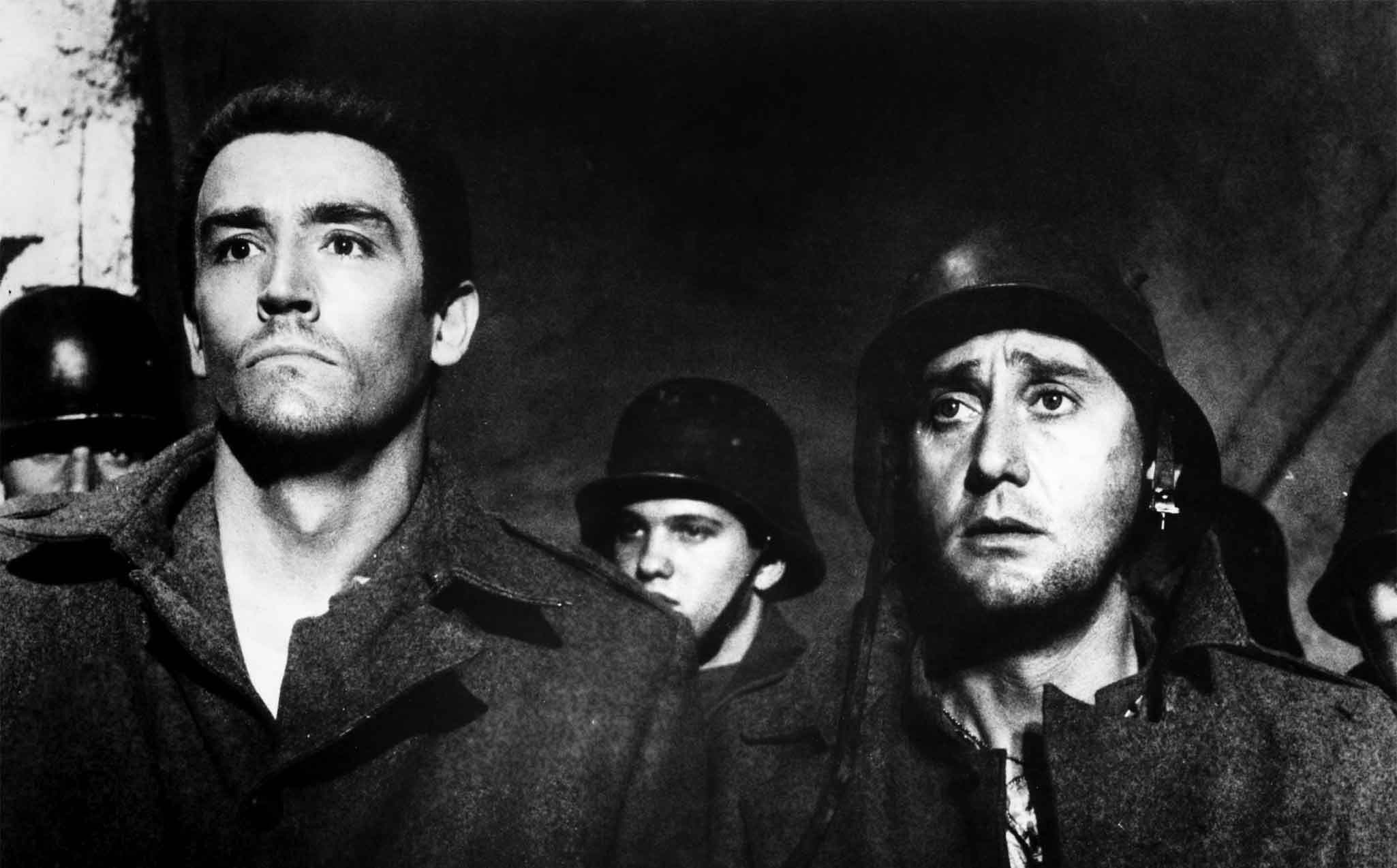
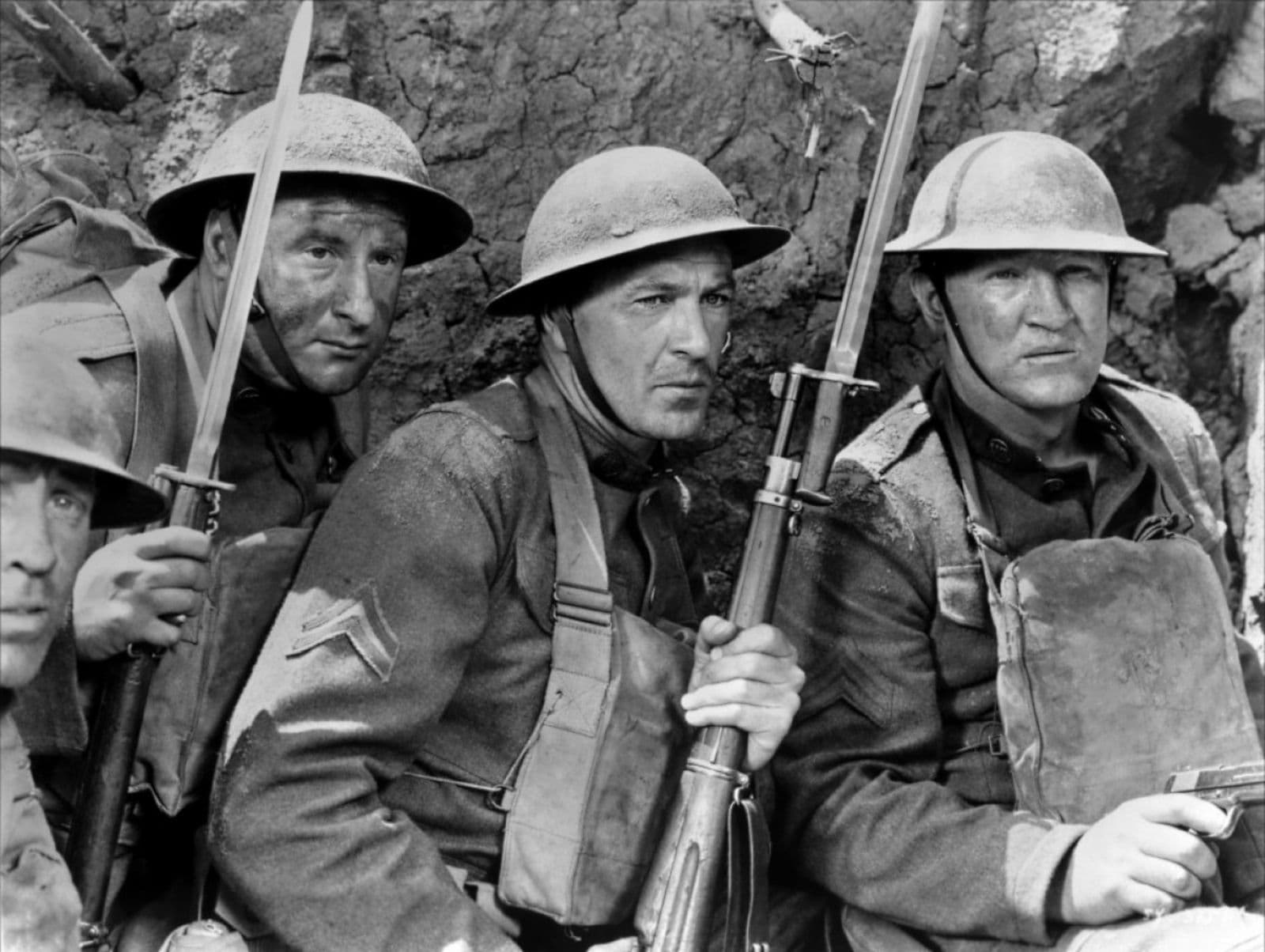
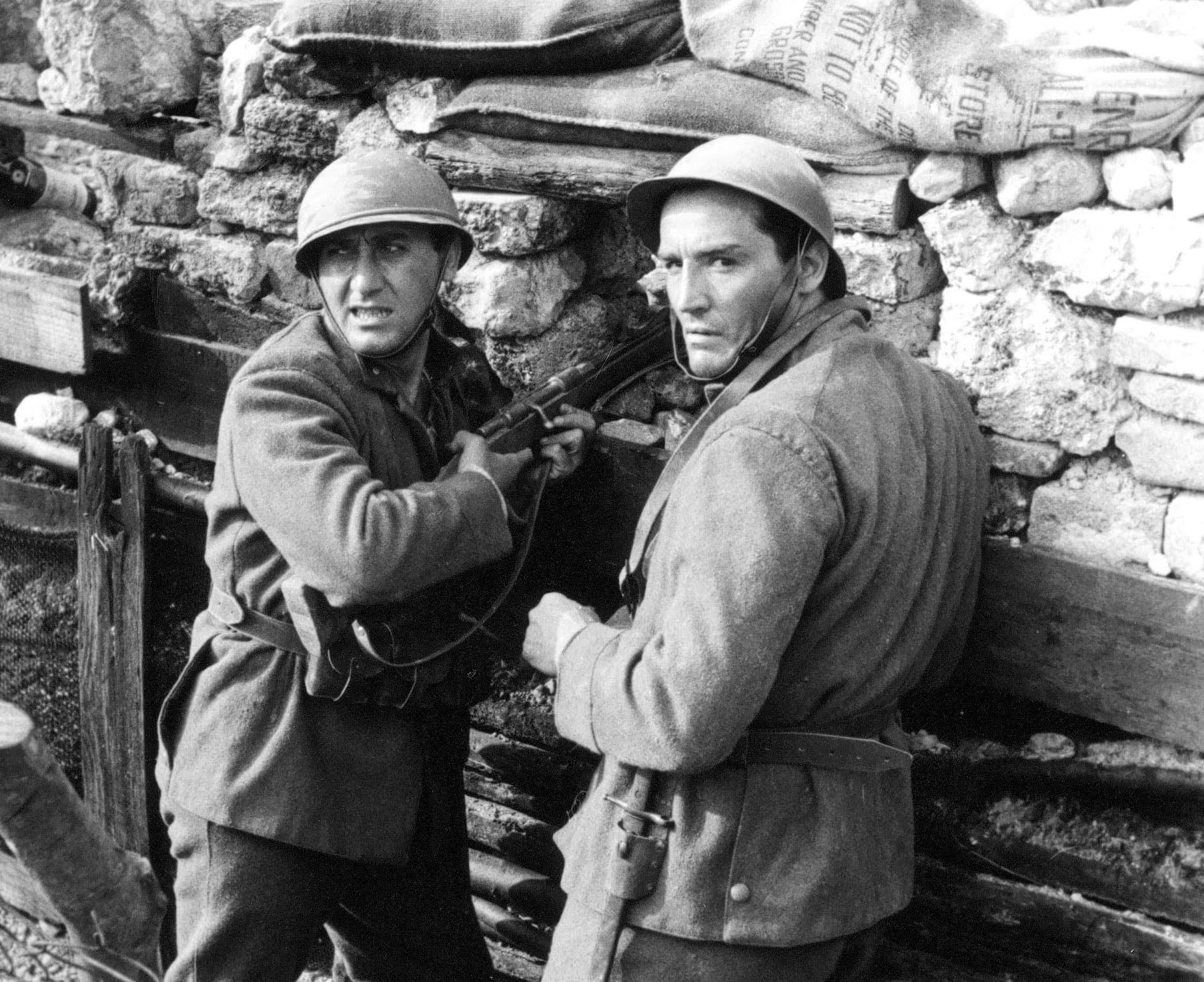
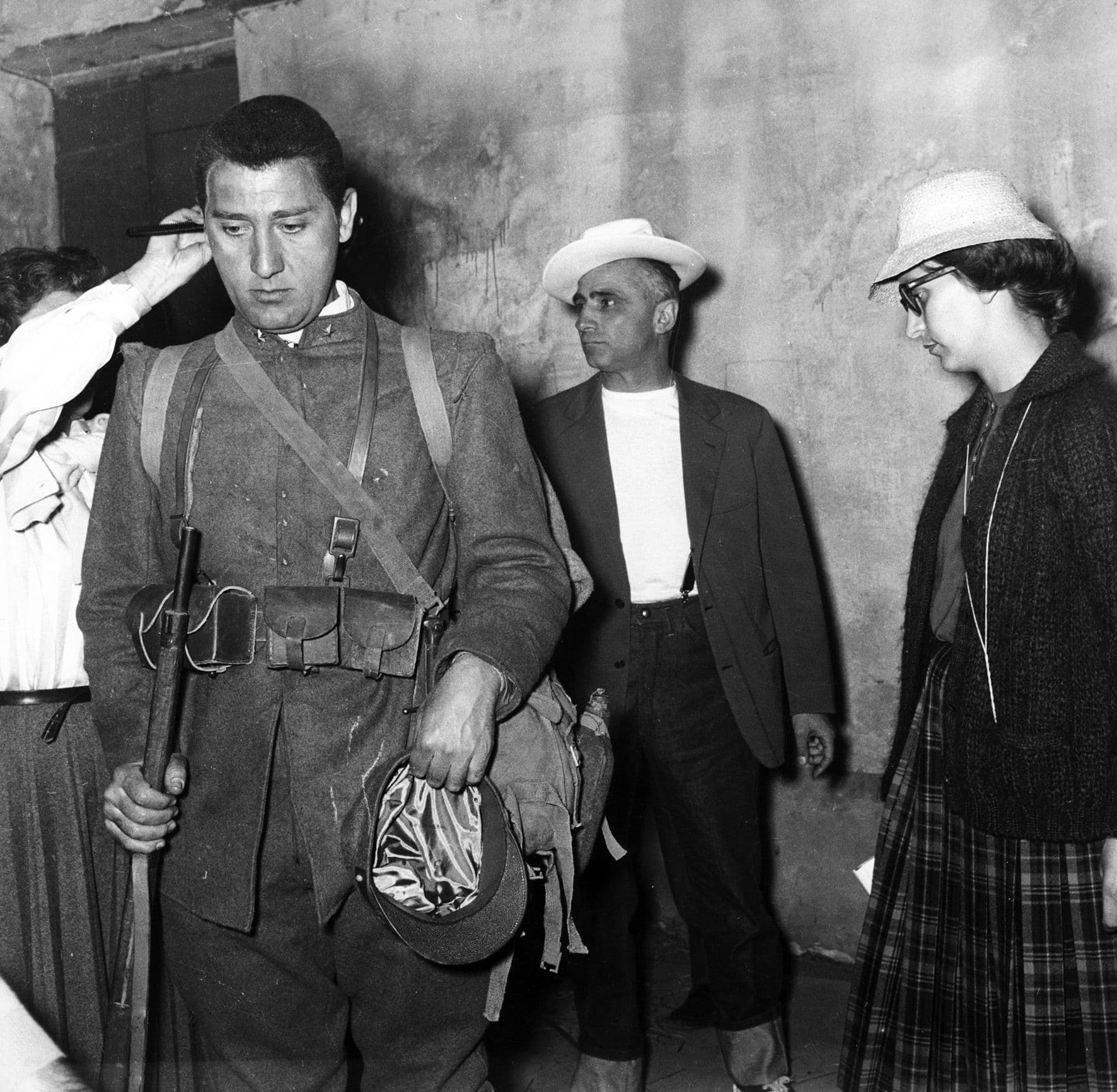
Featured Videos
Official Trailer
Comments
Loading comments...